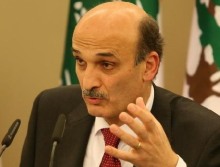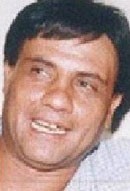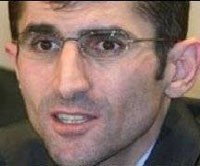 In his last speech, Hezbollah Secretary General Sayyed Hassan Nasrallah questioned the credibility of the Special Tribunal for Lebanon by claiming that the International court used testimonies of false witnesses in the investigation into the 2005 assassination of Lebanon’s former Prime Minister Rafik Hariri.
In his last speech, Hezbollah Secretary General Sayyed Hassan Nasrallah questioned the credibility of the Special Tribunal for Lebanon by claiming that the International court used testimonies of false witnesses in the investigation into the 2005 assassination of Lebanon’s former Prime Minister Rafik Hariri.
Lebanese Forces leader Samir Geagea responded on Wednesday by saying that all of the alleged false witnesses used are Syrians and most of them belong to the Syrian intelligence agency, according to a statement from his press office.
In a possible reference to Syria, Geagea said false witnesses were brought in by “another party” to undermine the investigation.
“How can a witness hold a press conference admitting he is a false witness after testifying in the investigation?” he asked, adding that this is a charade that only the STL can clarify.
“How do they know that these false witnesses misled the Hariri investigation when it is supposed to be classified?” Geagea also asked .
Geagea pointed out that the four generals who were detained in 2005 for their alleged involvement in Hariri’s murder were released in 2009 because of lack of sufficient evidence and not because they were innocent.
Geagea stressed that STL indictment will be rejected if it is not based on evidence and facts, he said, adding that Hezbollah should further discuss with March 14 its warning about the outbreak of sectarian conflict when the tribunal issues its pending indictment.
Geagea also criticized Change and Reform bloc leader MP Michel Aoun for saying that if he were a prosecutor in the case, he would question Geagea in the investigation.
Syrian agents
The following Syrian agents provided information to the UN investigation team:
 Mohammed Zuhair Siddiq also known as Mohamad Zouhair Siddik is a self proclaimed former Syrian intelligence operative who used to live in Lebanon.
Mohammed Zuhair Siddiq also known as Mohamad Zouhair Siddik is a self proclaimed former Syrian intelligence operative who used to live in Lebanon.
.
.
.
.
 Husam Taher Husam another self proclaimed former Syrian intelligence operative
Husam Taher Husam another self proclaimed former Syrian intelligence operative
Both provided information that led the Lebanese authorities to arrest the four Lebanese generals.

Leave a Reply
You must be logged in to post a comment.